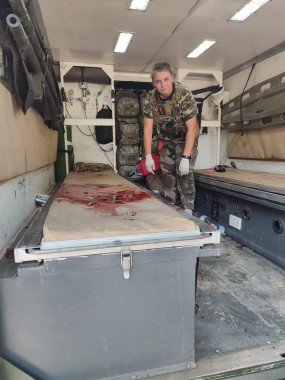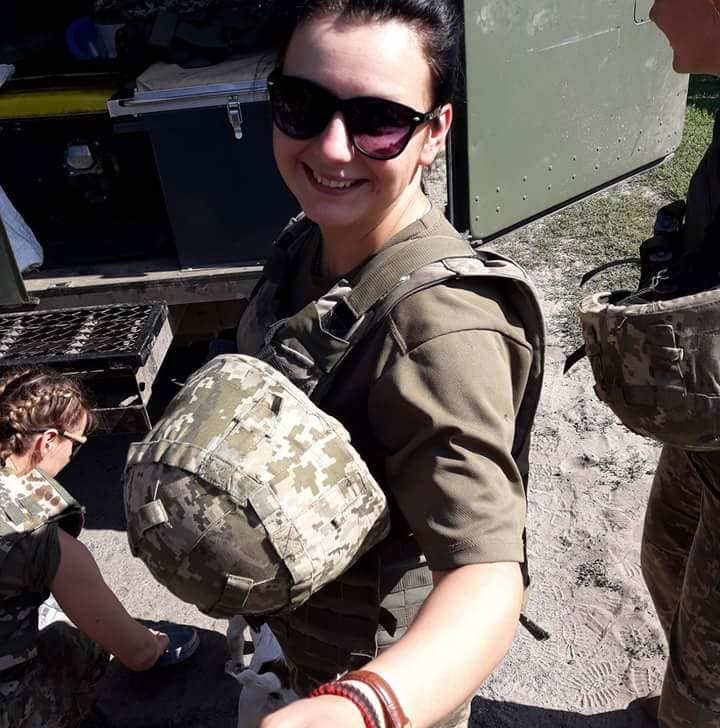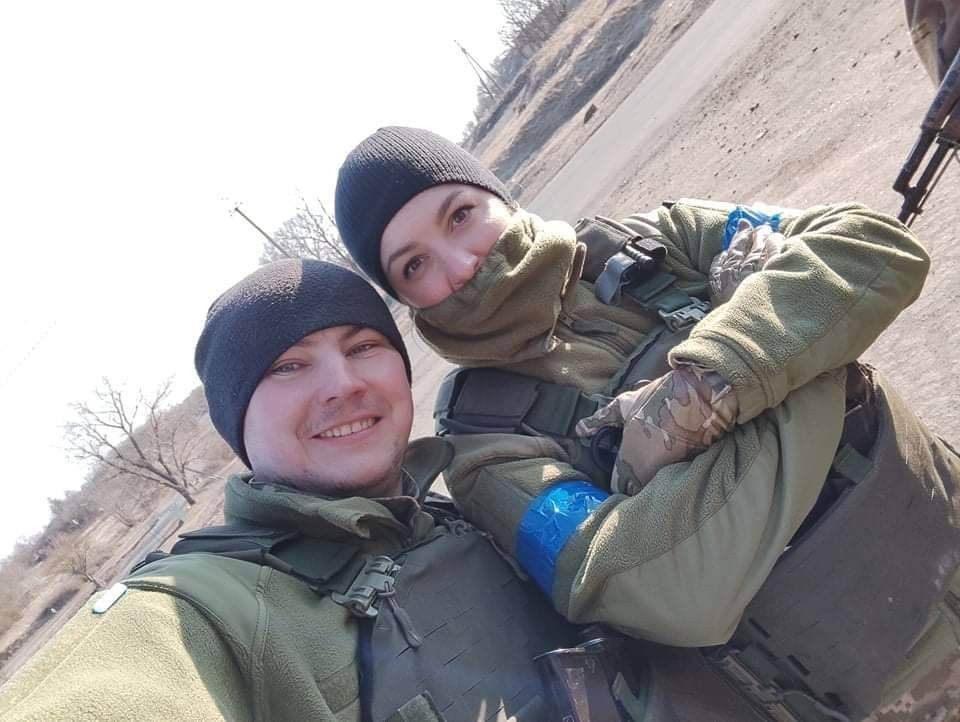
Heroes of Ukraine: Anna with the call sign Hayka - evacuates wounded from most difficult frontline areas
A woman saves soldiers of the 80th Airborne Assault Division. Works in difficult areas of the front, where few people can reach.
Woman's story is told by Espreso.
Anna with the call sign Hayka (Nut in English) is a combat medic of the 80th Airborne Assault Division. She joined the army as a volunteer back in 2016. For two years, she saved our soldiers on the front line and did not hesitate during a full-scale Russian invasion. On February 24, she returned to the army.
"When I joined the army, it was scary, because it was all unknown and unusual," Anna says. "I got used to being a civilian who does what she wants, not what she is told. But I am used to military life. And when I was released from the contract, I wanted to return, because I missed military service."

Anna is a professional medic. She graduated from medical college and worked for several months in a civilian hospital in the therapeutic department as a ward nurse. But the woman wanted to be useful at the front, to help Ukrainian soldiers in combat conditions. So she signed a contract in December.
"At that time, I worked in the city where one of the military units is located and I saw how echelons of equipment were moving and our guys were going to the front," Anna says. "I wanted to go too and be useful and see how it all happens. At first, I was in the training center, underwent training, got to know the entire team and then went on the front line."

She first went to the front in Pisky, Donetsk region, after completing additional medical training, because civilian medicine is different from combat medicine. According to Anna, the hospital has everything at hand, doctors have equipment and resources. But at the front, it is different, and injuries are also different. Gunshot, shrapnel, or mine-explosive injuries mostly occur.
"I had a young boy with a gunshot wound to the leg," Anna recalls the first wounded person she saved. I was then in the crew who helped. For example, every time we talked about departure, they pointed out my mistakes and I made changes in my work. I knew that I could rely on them and it was easy for me to work with them."
When Russia's full-scale invasion of Ukraine began, Hayka was again at the Military Commissariat on the first day. And she returned to the front with her husband on the first bus of the mobilised. Admittedly, it has become more difficult now, because this is a tougher war than it was before February 24 of the previous year. There was a lot of artillery shelling, and injuries became much more severe.

"We were on duty in Donetsk direction daily and changed crews," Anna says about the situation at the beginning of the full-scale invasion. There were days when we had 30 wounded in a day from morning to evening, not counting the dead - and that's only during the day. Our medical "Hamer" could carry a dozen wounded people. Two of them could be seriously injured, and all the others were medium, those who could sit. They sat on top, on the side next to the heavy ones, in the cabin, next to the driver, wherever they could get in, they sat there."
Anna has to work in difficult conditions. The crew's car is quite passable, so it can drive along advanced areas of the front. Therefore, it is necessary to evacuate the wounded from the battlefield and rescue soldiers during movement.
"There was a soldier with severe injury from another division. He was brought to us with penetrating injury to the chest," Hayka says about the most seriously wounded. "He died in our car. We performed resuscitation measures, but they were not effective. He was younger than me." It was the most difficult. Now it is artillery war. Most of the injuries are from artillery shelling, they are shrapnel or they can also be mine-explosive. Shelling continues constantly. On the front line, there is blood, chaos, and fear." Anna says war changed her life. She began to appreciate every moment of life and moments that seemed ordinary before the war. She admits that before the full-scale war, she thought that something was missing in life, she did not appreciate elementary things: for example, washing every day, sleeping in a bed, eating homemade food. And now she understands how good it is to have all this.
Currently, Anna is doing everything in her power to ensure that our military defeats the Russian enemy as soon as possible. And then she dreams of returning home with her husband, having children and living in a happy and free Ukraine.
All photos were provided by Anna.
- News












































